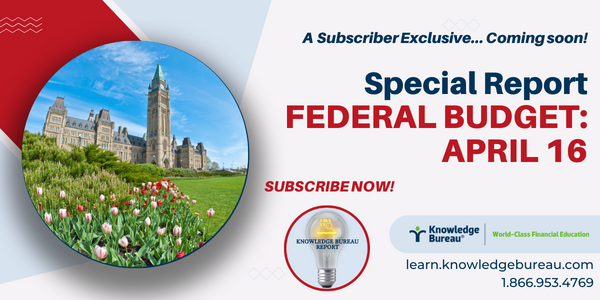April 16 Budget: Tax Law Must be Accountable

Evelyn Jacks
Did you know that 93% of Canadians voluntarily participate in the tax system, with 90% filing on time every year? Not only that but 91% of Canadians pay their tax liabilities on time. Recently the trust factor has been declining according to CRA’s performance indicators and, with the faulty implementation of two new taxation regimes in Canada, there have been calls for accountability in CRA procedures. However, this may be somewhat unfair to CRA, as tax law-making begins with the Federal Budget; the next one on April 16. Here’s what’s at stake:
It is the Finance Department’s responsibility to draft sound tax proposals, with simple preambles that clear outline the intent, object and spirit of the new law. It is a requirement under the new  proposed General Anti Avoidance Rules that taxpayers take this into account in their tax planning.
proposed General Anti Avoidance Rules that taxpayers take this into account in their tax planning.
It is also important for the Finance Department to consult widely with Canadians to be sure the rules are understood so that taxpayers can voluntarily comply and self-assess with certainty. This includes taxpayers, their professional advisors and the MPs that pass the laws.
Tax law that is simple, fair and equitable leads to self-assessment that is voluntary and more accurate. In an open and transparent tax system, people will come forward to correct errors and omissions because they can trust the tax department to treat them fairly. That’s were CRA comes in.
The faulty implementation of the Underused Housing Tax (UHT) and the bare trust filing requirements, culminated in two last minute aborts just hours before a filing deadline. Both produced an expensive, intrusive and non-productive exercise that disrespected the time and money expended by honest taxpayers and their advisors, who have legal and fiduciary duties, respectively, The fact that this happened twice has further eroded the trust in our tax system, which has already been falling according to CRA stats.